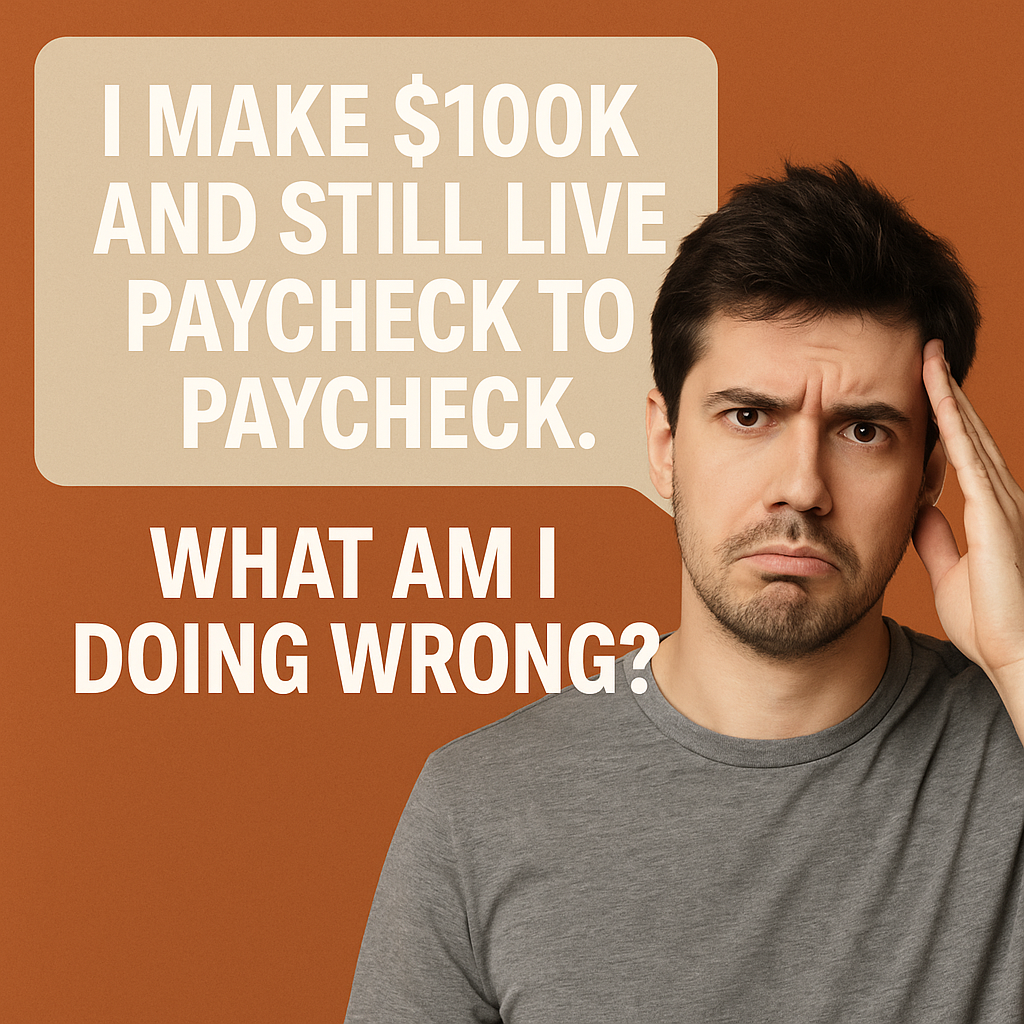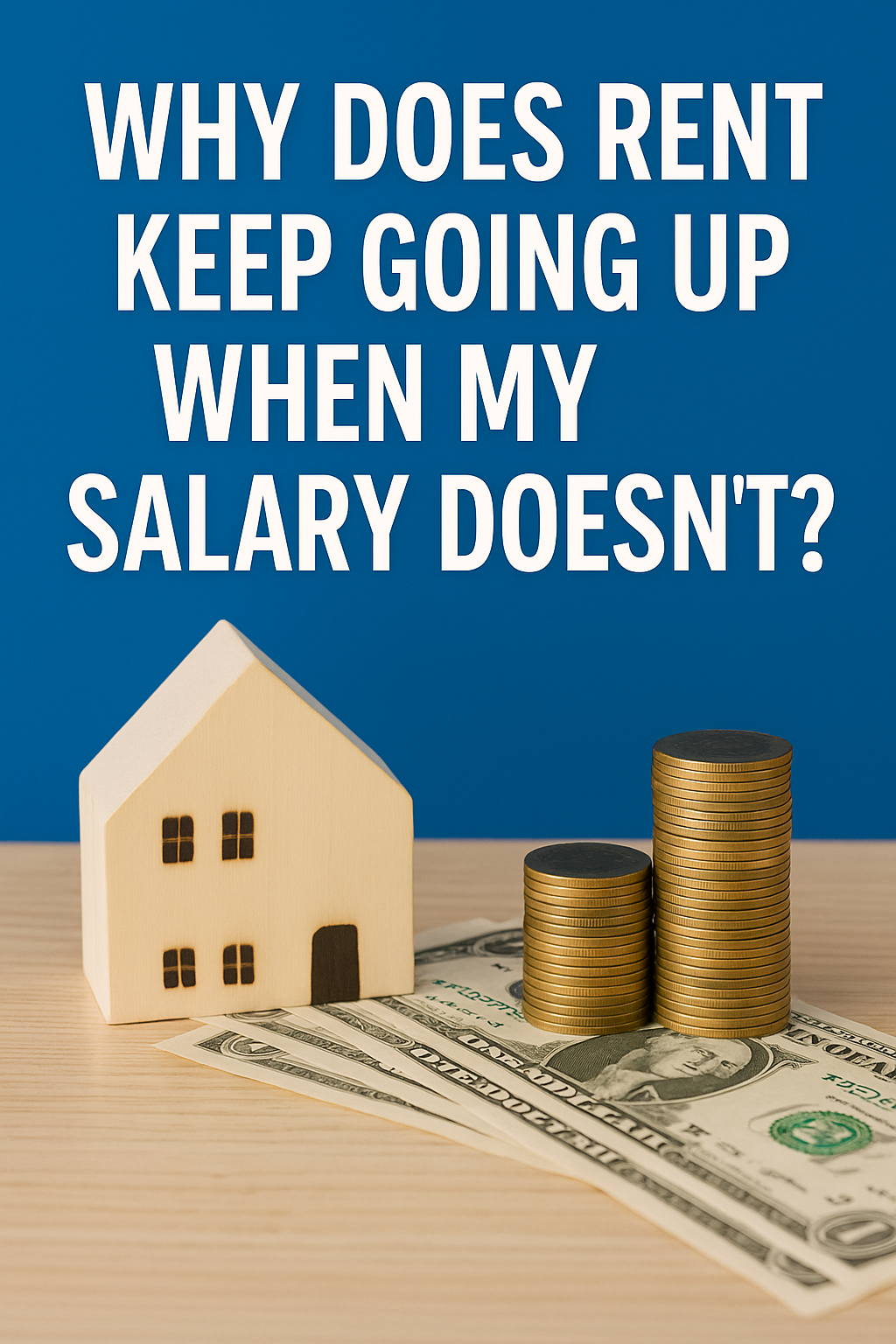If you’ve ever caught yourself wondering how your six-figure salary still leaves you stressed about rent, bills, and whether you can afford guac at Chipotle — you’re not alone.
In fact, a recent LendingClub report showed that over 50% of Americans making $100,000 or more live paycheck to paycheck. That’s not just a stat — it’s a wake-up call. You’re not crazy, and you’re definitely not the only one. But if you want to stop feeling broke while earning big, we need to talk about what’s really going on.
💸 The Sneaky Culprit: Lifestyle Inflation
Let’s start with the quiet villain — lifestyle creep.
It goes like this: You get a raise. Suddenly your 10-year-old car seems “unsafe,” your 1-bedroom feels “too small,” and your grocery bill mysteriously includes a lot more pre-cut fruit and organic cheese.
Lifestyle inflation is the tendency to spend more as you earn more — and it feels totally justified. “I work hard, I deserve nice things,” right?
But the danger is that your standard of living increases, while your financial freedom doesn’t. You upgrade your lifestyle, but you’re still just one surprise expense away from financial anxiety.
🎯 Quick check: Compare your current lifestyle to when you were making $70K. Are you saving more — or just spending more?
📉 The Budget Black Hole: Fixed Costs Gone Wild
While daily coffee runs get a lot of blame, it’s actually your fixed costs — rent, car payments, daycare, subscriptions — that usually eat the biggest chunk of your paycheck.
If you’re spending more than 50% of your take-home pay on fixed expenses, you’re probably feeling squeezed.
Here’s where higher earners often fall into a trap: You qualify for more (luxury apartments, auto loans, premium credit cards), so you buy more — even if those choices restrict your ability to save.
🚨 Red flag alert: If your lifestyle only “works” as long as every paycheck arrives on time, your fixed expenses are too high.
🧾 You Don’t Have a Spending Problem — You Have a Planning Problem
It’s not that you’re bad with money. You’re just using a reactive approach — spending and then saving what’s left (which, spoiler: is often nothing).
The fix? Flip the script with reverse budgeting — aka paying yourself first.
Here’s how it works:
- Automate your savings right after payday:
- 💰 15–20% to retirement/investments
- 💵 Emergency fund or sinking funds (vacation, car, gifts)
- Whatever’s left? That’s your lifestyle budget.
By prioritizing savings, you’re choosing financial freedom first, not trying to find it with whatever scraps are left over after a fun weekend.
🧠 Mindset Shift: From “I Deserve This” to “I Choose This”
Let’s get real — it’s not just math. It’s mindset.
The most dangerous financial phrase is:
“I work hard. I deserve this.”
You do deserve nice things. But ask yourself this:
Would I rather have this now, or own my time and choices later?
A $100K salary should buy you freedom — not just fancier gadgets and a better wardrobe. And freedom starts when you realize that budgeting isn’t punishment. It’s permission to spend — just in a way that aligns with your long-term goals.
🚀 What $100K Should Feel Like
With a well-managed budget, a $100K income should provide:
- A healthy emergency fund (3–6 months of expenses)
- Consistent retirement savings
- Room for vacations and fun
- The option to take risks — change careers, start a business, or take time off
You’re not “failing” at money. You’re just playing the six-figure game with the same rules you used when you made $50K. It’s time for a level-up.
✅ Final Thoughts: You Can Fix This
Earning more doesn’t automatically fix your money — but learning to grow into your income, not just spend it, does.
You don’t need to slash your lifestyle or live like you’re broke. You just need to budget like someone who wants options, not obligations.
Related Articles:
- Budgeting for Predictable and Unpredictable Expenses
- Career Advice for Gen Z. Income First, Fund Your Passion Later
Financial Disclaimer
The information provided on HelpyYourFinances.com is for general informational purposes only and is not intended to be financial advice. While we strive to ensure the accuracy and reliability of the content, it is important to remember that financial decisions are personal and should be tailored to your individual circumstances.
We strongly recommend that you consult with a qualified financial advisor or other professional before making any financial decisions. The content on this website should not be considered a substitute for professional financial advice, analysis, or recommendations. Any reliance you place on the information provided is strictly at your own risk.



